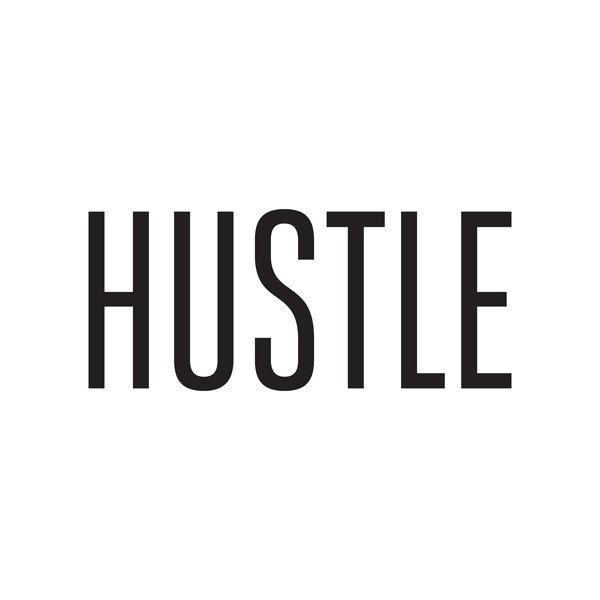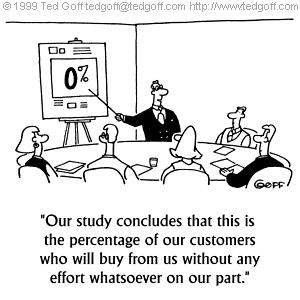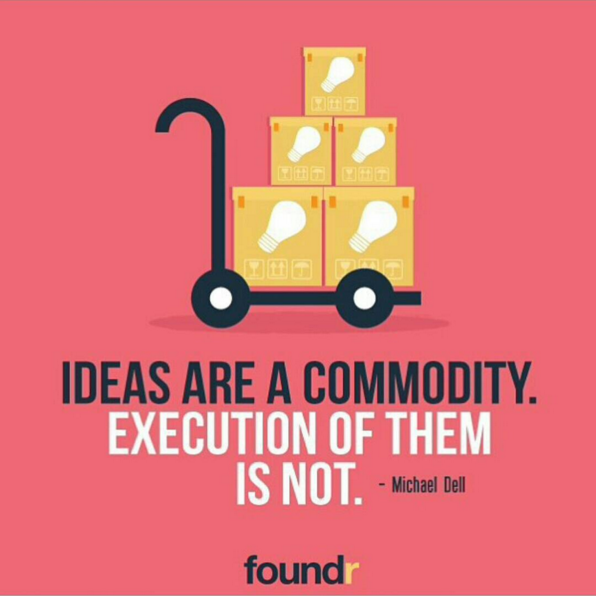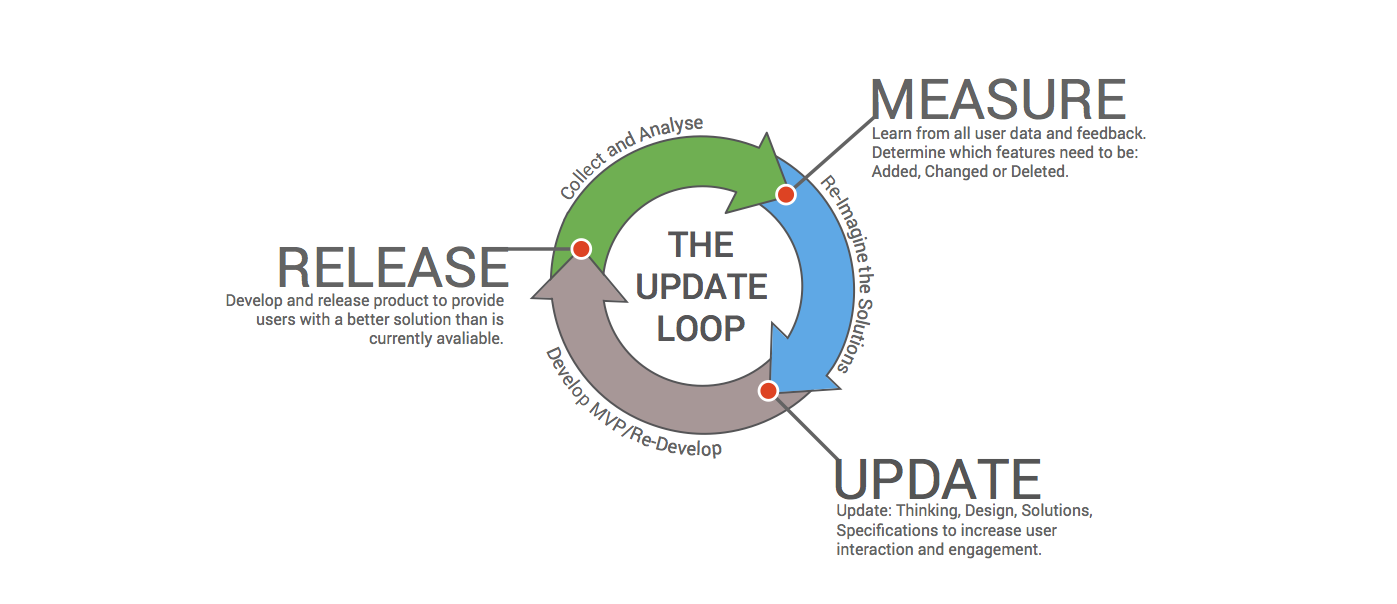5 Skills All Tech-Hopeless Founders Must Master ASAP
Building a tech company from the ground up is a daunting task for anyone.
For non-technical founders, it can sometimes feel like they’re doomed to fail!
Good news: You absolutely don’t need to have a technical background to build a commercially successful application!
Some of the world’s best loved tech products were brought to your fingertips by founders with zero technical experience:
![]() Pandora – Tim Westergren was the ‘musical third’ of the 3-man team that founded Pandora, but it was Westergren who stayed with the company and became CEO. Today, Pandora has 81 million users and $900 million in annual revenue.
Pandora – Tim Westergren was the ‘musical third’ of the 3-man team that founded Pandora, but it was Westergren who stayed with the company and became CEO. Today, Pandora has 81 million users and $900 million in annual revenue.
 Airbnb – CEO Brian Chesky’s background is in Industrial Design. He met his co-founder and Chief Product Officer Joe Gebbia at the Rhode Island School of Design. Airbnb’s latest valuation as of 2015 was $25.5 billion!
Airbnb – CEO Brian Chesky’s background is in Industrial Design. He met his co-founder and Chief Product Officer Joe Gebbia at the Rhode Island School of Design. Airbnb’s latest valuation as of 2015 was $25.5 billion!
![]() Canva – The co-founder and CEO Melanie Perkins was a teacher of graphic design at University of Western Australia when she came up with the idea for a simple drag and drop graphic design platform. After an initial US investment round, she was able to fund its development with some of the top software engineers in San Francisco. Today, Canva is one of Australia’s biggest international success stories.
Canva – The co-founder and CEO Melanie Perkins was a teacher of graphic design at University of Western Australia when she came up with the idea for a simple drag and drop graphic design platform. After an initial US investment round, she was able to fund its development with some of the top software engineers in San Francisco. Today, Canva is one of Australia’s biggest international success stories.
If you’re a non-technical founder, I hope that gave you an ego boost!
Ok, so now that you can breathe out knowing that you don’t have to go to code school, I want to talk about a few lessons I’ve learned as a non-technical founder of an app development company.
These are 5 critical skills you need to constantly work on to ensure you’re offering the most value as a non-technical founder that you possibly can.
-
Research and validation

Without a prototype, you’re quite limited in your ability to validate your idea and get useful feedback.
This is where entrepreneurs become hardcore research analysts.
Fortunately, we’re living in a digital age where we have so much information at our fingertips.
Unfortunately, that information isn’t always well-organised for us to find and sink our teeth into.
Researching is something you get better at with practice, like anything.
Although most of us are digital natives, I still sometimes feel like tearing my eyes out when I watch people use Google incorrectly.
There is a right and wrong way to Google so you find relevant content!
Read this blog to learn how to find out the answer to pretty much any question using Google.
Especially in the ideation phase of your startup, this skill will be invaluable.
You need to be able to:
Check out this crash course for a run down!
Hit the streetz
I’m speaking metaphorically and literally here!
Get out on the street and talk to your potential customers so you understand their pain points in and out.
This is a really important part of the research process.
Any common frustrations or desires that keep coming up could become core or added features of your product.
You could even discover a niche demand for a feature that you may be able to charge a premium for, down the line.
See also: How To Choose The Right Monetisation Model For Your App: 6 Key Questions
Resources:
How To Harness The Power of Google And Become A Learning Machine
How To Build An App: Moving Forward With Your App Idea
2. Hustle (marketing and sales)

Your technical team may take months to develop your app into a Minimum Viable Product you can put into the hands of your customers.
What are you going to be doing while your technical team is building the product?
Making sure that there are customers lined up to download it when the app launches, of course!

Marketing
It’s never too early to start generating buzz and collecting feedback about your idea.
You should also use these months to build a solid online presence and develop online relationships with your potential customers.
Use these cost-effective marketing tactics to capture the details of your prospects and nurture them for when your app launches.
You should also get your hustle on at networking events, seminars or meet ups in your niche.
It doesn’t matter whether your app is commercial or B2B, you must spend time getting the word out about your product.
See also: Mobile App Marketing: Get 100,000 Downloads Within 30 Days Of Launch
Sales
Selling is by far the most important job of a non-technical founder.
A lot of people get turned off by the word ‘selling’ – you think of a salesman, and your first thought is some fast talker conning you into parting with your hard earned cash.
The truth is that we are all selling all the time to everyone.
We sell our ideas, our opinions, our friends, our partners…Own it! You’ve been selling for years.
Because of how ingrained selling is to our society’s way of functioning, it shouldn’t be surprising that the most successful people in the world are the people who sell the best.

But really, successful selling isn’t about convincing people. It’s about connecting.
- Need to raise funds? You’ll need to connect with investors, using your business plan and vision to appeal to both their risk averse and emotional needs.
- Need to onboard new customers or clients? You need to have a completely immersive understanding of your customer’s frustrations and desires, so you can connect with them on a personal level.
- Want to hire the best team? You need to connect with new job candidates to show them that they will be a good fit for your workplace culture.
- Need business partners? You need to know how you can communicate this partnership as a win-win opportunity, connecting with the partner’s business objectives.
And so on.
Selling is an incredibly useful skill to have in your tool belt, and the best news is that it absolutely CAN be learned.
You don’t need a personality transplant, and you don’t need to be an extrovert or a hyped up visionary.
You just need to know how to highlight aspects of your business in ways that resonate with different people.
My hottest selling tip: Mimic the personality and communication style of the person you are talking to.
For example:
- Dominant people only respond to strength, so ensure you are also dominant and to the point.
- Social, bubbly people value friendship and kindness. They respond well to someone who they enjoy being in the company of.
- Quiet people like to be listened to carefully and don’t respond well to being overpowered by salespeople.
This is pretty basic human psychology – we are attracted to people who are similar to us. Like attracts like!
Resources:
Pitch Anything by Oren Klaff
Key Person Of Influence by Daniel Priestly
How To Win Friends And Influence People by Dale Carnegie
3. Doing things fast

All too often I see clients take too long to do tasks they feel uncertain about.
It’s scary diving into the deep end, but resist the temptation to be a perfectionist.
I recently interviewed Jodie Fox, the CEO of Shoes Of Prey, on how she built her e-commerce empire.
Her personal motto?
“Do everything before you’re ready”
Focusing on the short game will get you much further than stressing out over the long-term implications of every email you send.
I’d highly recommend familiarising yourself with the ‘lean’ method by reading The Lean Startup.
This method weeds out all the excess bloat that slows down the business development process.
It focuses on core problems, identifying where the ‘low hanging fruit’ is, and what your competitive advantage is.
This eliminates waste, gets things done faster, and ensures a constant process of innovation.
Resources:
The 2 Forgotten Secrets To Startup Success
Getting Things Done by David Allen
Hour Of Power by Tony Robbins
The Lean Startup by Eric Ries
4. Knowing your weaknesses

You need a network, because you will need to ask for help.
If you’re seriously lacking something in your team (like technical experience), look for a business partner, team member or developer who can fill that gap.
Investors don’t want sole founders who claim they can do everything. They want well-rounded teams – they de-risk investments.
See also: The Secret To Acquiring Venture Capital Investment
There is no shame in acknowledging your own weaknesses.
Someone who knows their weaknesses has a leg up over entrepreneurs who only know their strengths.
Outsourcing a task to an expert will cost you a bit of money, but it ensures the job is done faster and better than you could have done, and it frees up time to focus on where you add most value.
If you’re honestly terrible at marketing, hire a marketing coordinator!
Not up to designing your own website from scratch? Hire a website designer on a project-by-project basis.
Bonus tip: Empower your team with responsibilities and let them have a say in major decisions of the company.
As entrepreneurs, it’s easy to get tunnel vision about what your product needs to be and how your startup will achieve its long term goal.
The truth is, your app is probably going to launch looking very different to what you’d originally imagined.
And that’s not a bad thing! Read 10 Successful App Pivots You Won’t Recognise From Their First Versions if you don’t believe me.
Taking on board the advice of everyone who comes into contact with your business (including customers) will allow you to build the most intuitive and engaging application you possibly can.
Resources:
How To Hire Rockstar Talent For Your Startup
Why We Chose Company Culture As Our Growth Strategy
5. Cheerleading
![]()
I don’t mean literally this time!
Travis Biorick, the non-technical co-founder of Kibin.com, advocates this mindset for other non-technical founders like him:
“You’re the ideas man; the guy with all the answers because you can’t sleep most nights due to your constantly racing mind on how to solve the next puzzle piece in your elaborate plan. A person that can do that is not only invaluable, but irreplaceable. It rubs off on people. You will create excitement with the people you talk to and interview and they will become incredibly loyal because they believe in you and your vision.”
It’s your responsibility to be the champion of everyone.
You are the champion of the customer because you advocate for their feedback to improve the product.
You’re also the champion of your entire team, making them feel valued and inspired, so they work at optimum productivity every day.
- Celebrate your team’s achievements
- Pep them up with small talk over lunch or parties
- Meet with them frequently
- Try to learn what they are doing, and give them feedback
- Understand their problems and then work towards solving them
You also need to be able to give feedback in ways that everyone understands.
Don’t underestimate how much detail gets lost in poor communication, and NEVER take for granted that someone understood something that you see as implicit.
When giving feedback, it can be helpful to talk in person and then follow up with an email to reiterate.
This leaves a paper trail and ensures the key takeaways are fully understood by everyone.
Resources:
Startup Founder Interview: How To Manage A Global Team And Work Anywhere
One last thing…The software development will never end

Don’t think of app development as a project.
Your startup will be constantly iterating to reach market fit, and it is a long process.
You must work with your technical partner on an ongoing basis once your app has launched.
Perform regular maintenance updates for bugs and slow performance, as well as upgrades to the function and features of your app to optimise user experience.
See also: Post Launch Hack: What To Do In The First 30 Days Your App Is On The App Store
If you stick to what you’re good at and improve these skills by 1% each day, you’ll be one of the non-technical founder success stories.
Remember, the main advantage you have over technical founders is your ability to step back from the product itself and view your business as a whole.
This is just as important as knowing how to code!
Where to go next
5 Lessons Every Startup Entrepreneur Must Learn
10 Fatal Commandments Of Building A Startup
The Answers To The 10 Most Frequently Asked Questions In App Development
Latest posts by Logan Merrick (see all)
- Ep 18: Collective Campus’ CEO on Intrapreneurship and Corporate Innovation - December 20, 2016
- 50 User Engagement Strategies For Planning Memorable Mobile Experiences - December 19, 2016
- Latest Data: App Monetisation Trends And Drivers 2015-2020 - November 25, 2016



